
Albert Bierstadt Giclée Fine Art Prints 6 of 10
1830-1902
German (Active in America) Hudson River School Painter
Albert Bierstadt, born in 1830 in Solingen, Prussia, would come to embody a certain vision of the American wilderness - a place of awe, grandeur, and untapped potential. His early years, spent in the rather unremarkable whaling town of New Bedford, Massachusetts, seemed an unlikely prelude to his later role as one of the foremost painters of the American West. But Bierstadt’s story is one of unexpected transformation, and his artistic journey took him far beyond the confines of his modest beginnings.
Like many artists of his time, Bierstadt sought formal training in Europe. In 1853, he traveled to the city of Dusseldorf, hoping to apprentice under Johann Peter Hasenclever, a fellow Prussian artist. But upon his arrival, Bierstadt discovered that Hasenclever had passed away, a cruel twist of fate for a young artist searching for guidance. He found, instead, the support of two American expatriates, Emanuel Leutze and Worthington Whittredge. These formative years in Europe shaped Bierstadt’s approach, refining his technical abilities and introducing him to a more academic style of painting.
When he returned to America in 1857, Bierstadt was not yet the name he would soon become. But his work, already showcasing the precision and clarity of European training, began to attract attention. It wasn’t until he ventured west, however, that his real breakthrough came. In 1859, Bierstadt joined an expedition to the Rocky Mountains - a journey that would profoundly alter his trajectory as an artist. The American frontier, largely unseen by the eastern populace, offered a subject matter of unparalleled majesty. Bierstadt, with his grand, sweeping canvases, would become its premier chronicler.
His work from this period, particularly the iconic "The Rocky Mountains, Lander’s Peak," elevated Bierstadt to the forefront of American landscape painting. These massive compositions weren’t mere depictions of nature; they were celebrations of a vast, unspoiled land. Bierstadt’s skill lay not just in technical prowess, but in his ability to convey an emotional depth, an almost spiritual reverence for the untamed wilderness. His landscapes became synonymous with a sense of national identity - a romanticized West that promised opportunity and renewal.
Despite his early successes, Bierstadt’s fortunes began to wane in the later decades of the 19th century. Critics accused him of indulging in spectacle, of producing landscapes too theatrical, too sensational. The intimate and nuanced had fallen out of favor, replaced by a growing appreciation for realism and the quieter rhythms of life. Bierstadt’s monumental visions were seen as relics of a fading age, out of touch with the more grounded artistic movements gaining traction.
By the time of his death in 1902, Bierstadt’s work had largely been forgotten. It was only in the 1960s, with a renewed interest in American landscape painting, that his contributions were reevaluated. In particular, his small oil sketches, which had once served as studies for his larger works, gained recognition for their spontaneity and freshness. These more intimate pieces revealed a lighter touch, a contrast to the towering canvases that had once made him famous.
Bierstadt’s legacy is a complex one. His name may not always be mentioned alongside the giants of American art, but his vision of the West - expansive, mythic, almost otherworldly - endures. Through his art, Bierstadt offered a glimpse into a landscape that was at once real and imagined, a dream of a wilderness both wild and boundless.
Like many artists of his time, Bierstadt sought formal training in Europe. In 1853, he traveled to the city of Dusseldorf, hoping to apprentice under Johann Peter Hasenclever, a fellow Prussian artist. But upon his arrival, Bierstadt discovered that Hasenclever had passed away, a cruel twist of fate for a young artist searching for guidance. He found, instead, the support of two American expatriates, Emanuel Leutze and Worthington Whittredge. These formative years in Europe shaped Bierstadt’s approach, refining his technical abilities and introducing him to a more academic style of painting.
When he returned to America in 1857, Bierstadt was not yet the name he would soon become. But his work, already showcasing the precision and clarity of European training, began to attract attention. It wasn’t until he ventured west, however, that his real breakthrough came. In 1859, Bierstadt joined an expedition to the Rocky Mountains - a journey that would profoundly alter his trajectory as an artist. The American frontier, largely unseen by the eastern populace, offered a subject matter of unparalleled majesty. Bierstadt, with his grand, sweeping canvases, would become its premier chronicler.
His work from this period, particularly the iconic "The Rocky Mountains, Lander’s Peak," elevated Bierstadt to the forefront of American landscape painting. These massive compositions weren’t mere depictions of nature; they were celebrations of a vast, unspoiled land. Bierstadt’s skill lay not just in technical prowess, but in his ability to convey an emotional depth, an almost spiritual reverence for the untamed wilderness. His landscapes became synonymous with a sense of national identity - a romanticized West that promised opportunity and renewal.
Despite his early successes, Bierstadt’s fortunes began to wane in the later decades of the 19th century. Critics accused him of indulging in spectacle, of producing landscapes too theatrical, too sensational. The intimate and nuanced had fallen out of favor, replaced by a growing appreciation for realism and the quieter rhythms of life. Bierstadt’s monumental visions were seen as relics of a fading age, out of touch with the more grounded artistic movements gaining traction.
By the time of his death in 1902, Bierstadt’s work had largely been forgotten. It was only in the 1960s, with a renewed interest in American landscape painting, that his contributions were reevaluated. In particular, his small oil sketches, which had once served as studies for his larger works, gained recognition for their spontaneity and freshness. These more intimate pieces revealed a lighter touch, a contrast to the towering canvases that had once made him famous.
Bierstadt’s legacy is a complex one. His name may not always be mentioned alongside the giants of American art, but his vision of the West - expansive, mythic, almost otherworldly - endures. Through his art, Bierstadt offered a glimpse into a landscape that was at once real and imagined, a dream of a wilderness both wild and boundless.
218 Bierstadt Artworks
Page 6 of 10
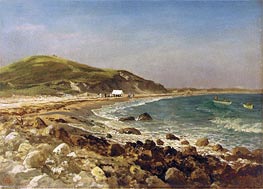
Giclée Canvas Print
$54.63
$54.63
SKU: 12100-BAL
Albert Bierstadt
Original Size:35.4 x 48.9 cm
Private Collection
Albert Bierstadt
Original Size:35.4 x 48.9 cm
Private Collection
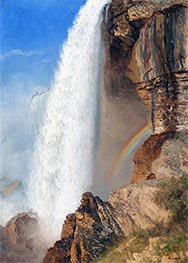
Giclée Canvas Print
$59.02
$59.02
SKU: 17034-BAL
Albert Bierstadt
Original Size:67.3 x 48.6 cm
Gilcrease Museum, Tulsa, USA
Albert Bierstadt
Original Size:67.3 x 48.6 cm
Gilcrease Museum, Tulsa, USA
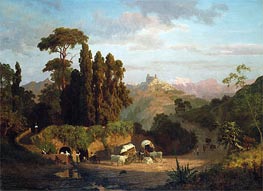
Giclée Canvas Print
$54.63
$54.63
SKU: 12113-BAL
Albert Bierstadt
Original Size:unknown
Private Collection
Albert Bierstadt
Original Size:unknown
Private Collection
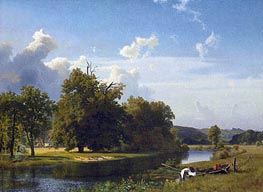
Giclée Canvas Print
$54.63
$54.63
SKU: 12167-BAL
Albert Bierstadt
Original Size:110 x 150 cm
Private Collection
Albert Bierstadt
Original Size:110 x 150 cm
Private Collection
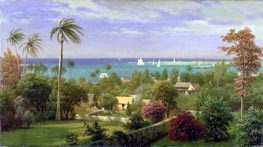
Giclée Canvas Print
$54.63
$54.63
SKU: 5022-BAL
Albert Bierstadt
Original Size:unknown
Private Collection
Albert Bierstadt
Original Size:unknown
Private Collection
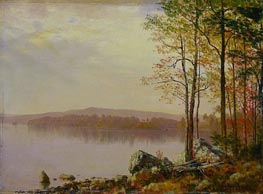
Giclée Canvas Print
$54.63
$54.63
SKU: 4962-BAL
Albert Bierstadt
Original Size:34.6 x 47.3 cm
Minneapolis Institute of Arts, Minnesota, USA
Albert Bierstadt
Original Size:34.6 x 47.3 cm
Minneapolis Institute of Arts, Minnesota, USA
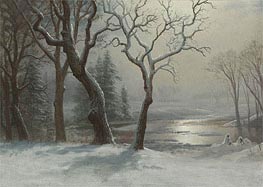
Giclée Canvas Print
$54.63
$54.63
SKU: 12158-BAL
Albert Bierstadt
Original Size:34.3 x 48.3 cm
Private Collection
Albert Bierstadt
Original Size:34.3 x 48.3 cm
Private Collection
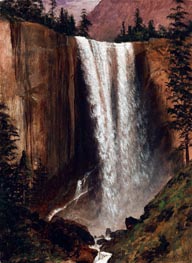
Giclée Canvas Print
$54.63
$54.63
SKU: 4974-BAL
Albert Bierstadt
Original Size:48.3 x 35.6 cm
Detroit Institute of Arts, Michigan, USA
Albert Bierstadt
Original Size:48.3 x 35.6 cm
Detroit Institute of Arts, Michigan, USA
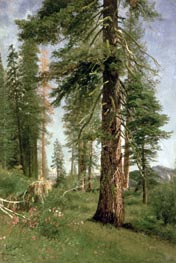
Giclée Canvas Print
$54.63
$54.63
SKU: 5024-BAL
Albert Bierstadt
Original Size:76.5 x 51 cm
Private Collection
Albert Bierstadt
Original Size:76.5 x 51 cm
Private Collection
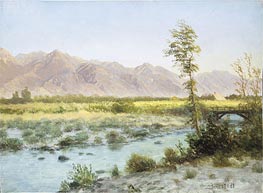
Giclée Canvas Print
$54.63
$54.63
SKU: 12109-BAL
Albert Bierstadt
Original Size:34.6 x 45.7 cm
Private Collection
Albert Bierstadt
Original Size:34.6 x 45.7 cm
Private Collection
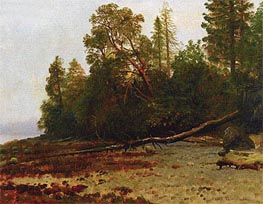
Giclée Canvas Print
$54.63
$54.63
SKU: 12155-BAL
Albert Bierstadt
Original Size:35 x 45 cm
Private Collection
Albert Bierstadt
Original Size:35 x 45 cm
Private Collection
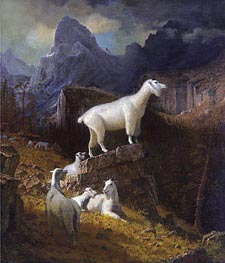
Giclée Canvas Print
$86.99
$86.99
SKU: 12161-BAL
Albert Bierstadt
Original Size:127.8 x 109.9 cm
Private Collection
Albert Bierstadt
Original Size:127.8 x 109.9 cm
Private Collection
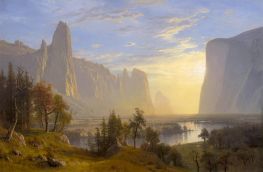
Giclée Canvas Print
$55.10
$55.10
SKU: 6870-BAL
Albert Bierstadt
Original Size:91.5 x 137.2 cm
Oakland Museum, California, USA
Albert Bierstadt
Original Size:91.5 x 137.2 cm
Oakland Museum, California, USA
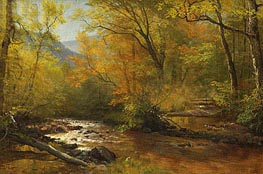
Giclée Canvas Print
$54.63
$54.63
SKU: 12168-BAL
Albert Bierstadt
Original Size:50.8 x 75.6 cm
Private Collection
Albert Bierstadt
Original Size:50.8 x 75.6 cm
Private Collection
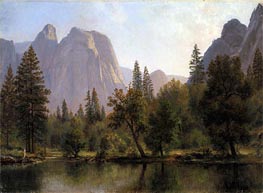
Giclée Canvas Print
$54.63
$54.63
SKU: 5015-BAL
Albert Bierstadt
Original Size:35.6 x 50.8 cm
Smithsonian American Art Museum, Washington, USA
Albert Bierstadt
Original Size:35.6 x 50.8 cm
Smithsonian American Art Museum, Washington, USA
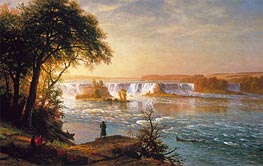
Giclée Canvas Print
$54.63
$54.63
SKU: 5708-BAL
Albert Bierstadt
Original Size:96.8 x 153.7 cm
Thyssen-Bornemisza Museum, Madrid, Spain
Albert Bierstadt
Original Size:96.8 x 153.7 cm
Thyssen-Bornemisza Museum, Madrid, Spain
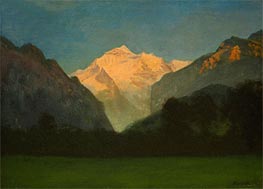
Giclée Canvas Print
$54.63
$54.63
SKU: 12055-BAL
Albert Bierstadt
Original Size:35.8 x 49.8 cm
Whitney Gallery of Western Art, Wyoming, USA
Albert Bierstadt
Original Size:35.8 x 49.8 cm
Whitney Gallery of Western Art, Wyoming, USA
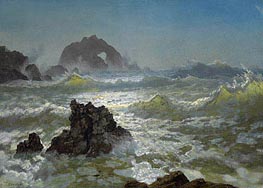
Giclée Canvas Print
$62.13
$62.13
SKU: 12163-BAL
Albert Bierstadt
Original Size:40.6 x 55.9 cm
Private Collection
Albert Bierstadt
Original Size:40.6 x 55.9 cm
Private Collection
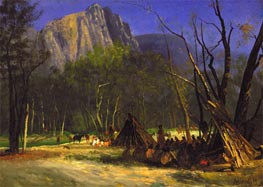
Giclée Canvas Print
$59.16
$59.16
SKU: 5017-BAL
Albert Bierstadt
Original Size:40.4 x 55.5 cm
Smithsonian American Art Museum, Washington, USA
Albert Bierstadt
Original Size:40.4 x 55.5 cm
Smithsonian American Art Museum, Washington, USA
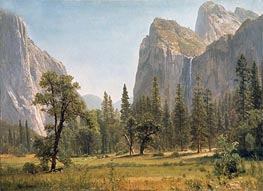
Giclée Canvas Print
$59.91
$59.91
SKU: 12135-BAL
Albert Bierstadt
Original Size:48.3 x 66 cm
Cincinnati Art Museum, Ohio, USA
Albert Bierstadt
Original Size:48.3 x 66 cm
Cincinnati Art Museum, Ohio, USA
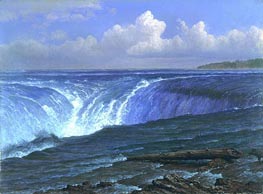
Giclée Canvas Print
$54.63
$54.63
SKU: 4985-BAL
Albert Bierstadt
Original Size:36.2 x 48.9 cm
Fine Arts Museums of San Francisco, California, USA
Albert Bierstadt
Original Size:36.2 x 48.9 cm
Fine Arts Museums of San Francisco, California, USA
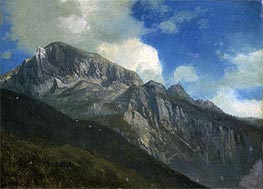
Giclée Canvas Print
$54.63
$54.63
SKU: 12064-BAL
Albert Bierstadt
Original Size:28 x 38.4 cm
Whitney Gallery of Western Art, Wyoming, USA
Albert Bierstadt
Original Size:28 x 38.4 cm
Whitney Gallery of Western Art, Wyoming, USA
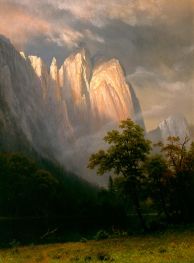
Giclée Canvas Print
$61.28
$61.28
SKU: 19316-BAL
Albert Bierstadt
Original Size:61 x 46 cm
Public Collection
Albert Bierstadt
Original Size:61 x 46 cm
Public Collection
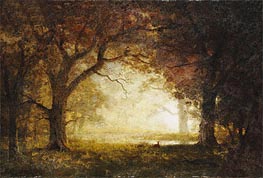
Giclée Canvas Print
$54.63
$54.63
SKU: 12124-BAL
Albert Bierstadt
Original Size:82.6 x 122.4 cm
Private Collection
Albert Bierstadt
Original Size:82.6 x 122.4 cm
Private Collection